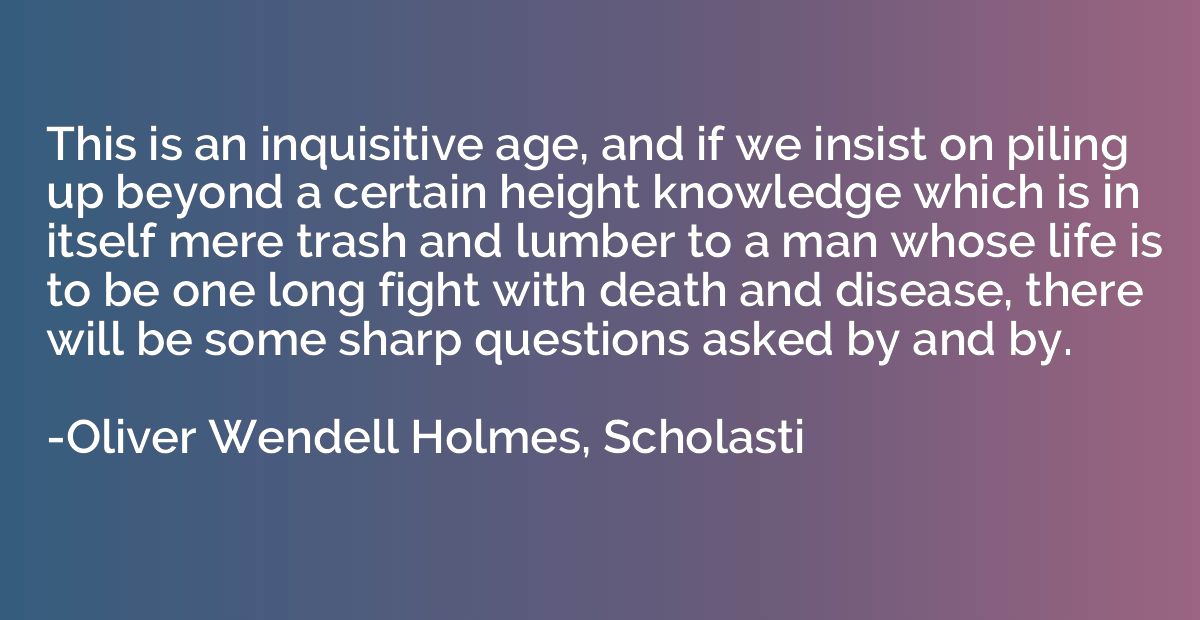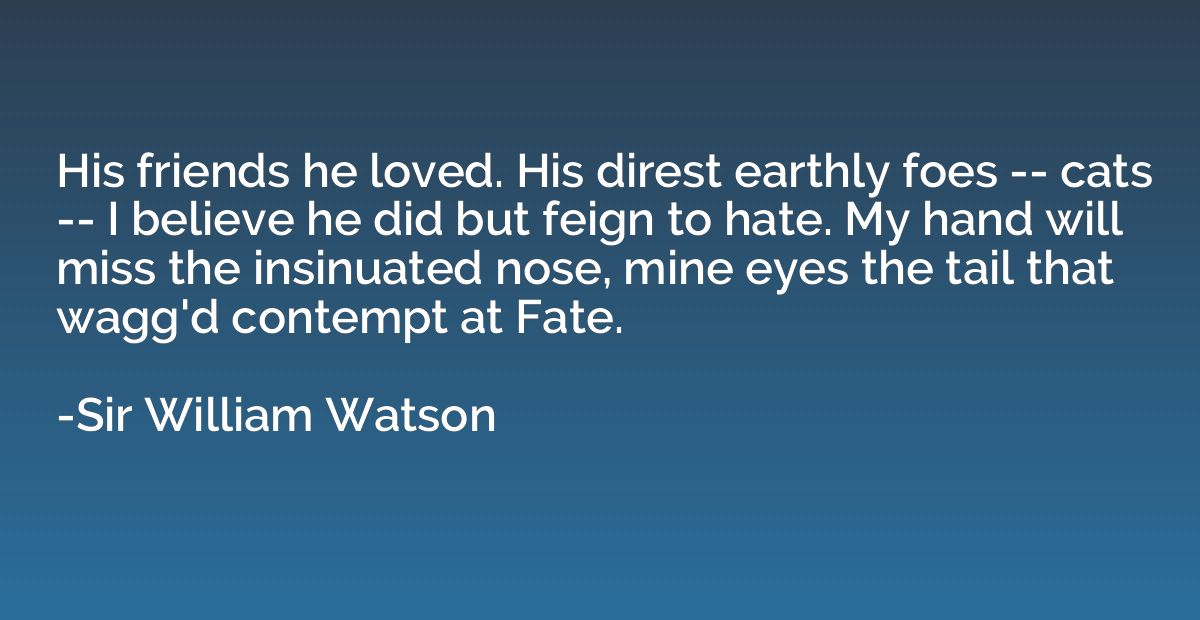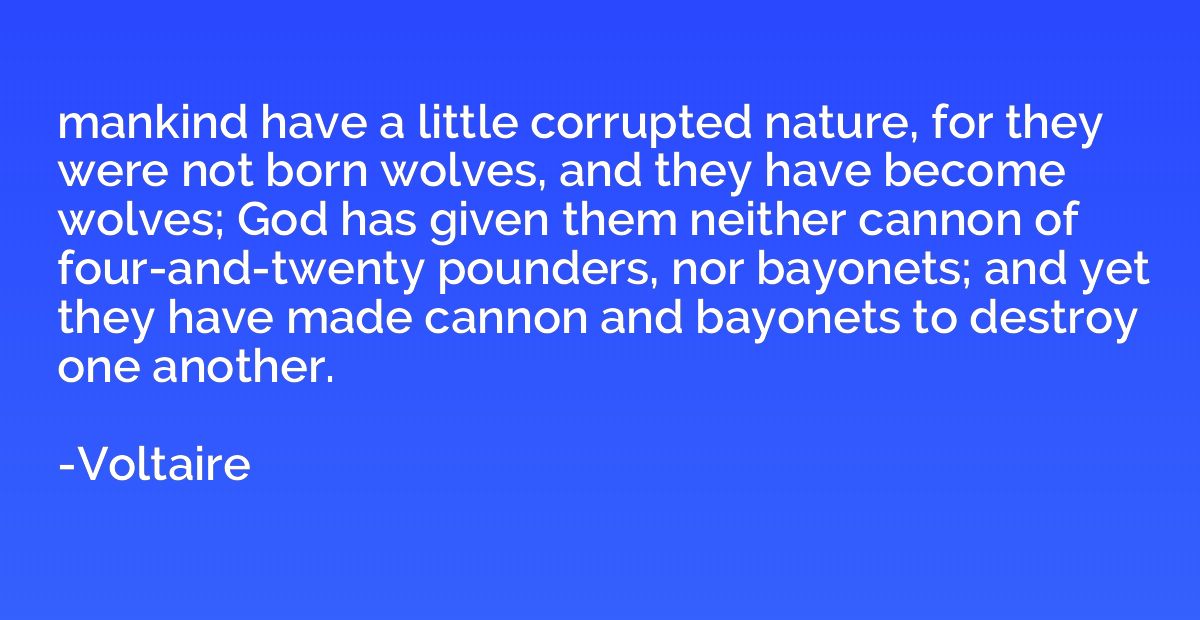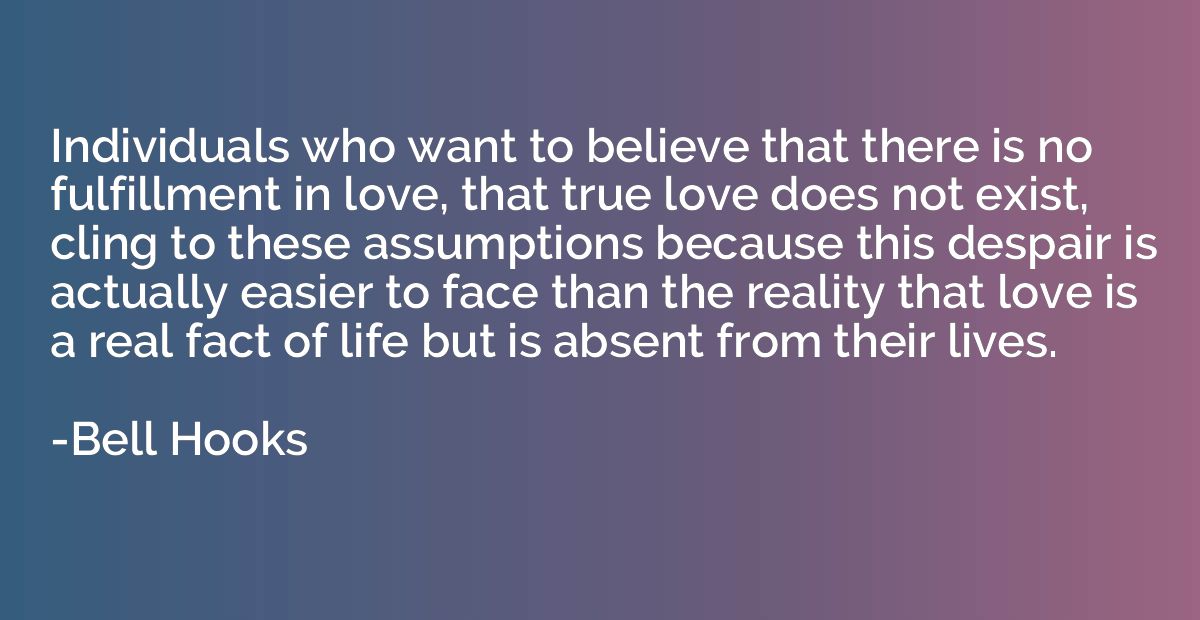Quote by Oliver Wendell Holmes, Scholasti
This is an inquisitive age, and if we insist on piling up beyond a certain height knowledge which is in itself mere trash and lumber to a man whose life is to be one long fight with death and disease, there will be some sharp questions asked by and by.

Summary
This quote suggests that in our curious and questioning society, there will come a time when people start to question the value of accumulating excessive knowledge. It argues that knowledge lacking practical application or significance is essentially useless to individuals whose ultimate struggle is with mortality and illness. As such, the quote hints at the notion that society should prioritize knowledge that has direct relevance to improving health and prolonging life, rather than getting caught up in the accumulation of trivial information.














